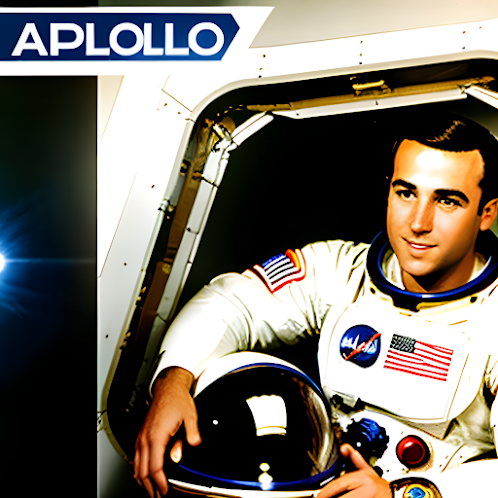The Apollo program, NASA's audacious quest to land humans on the Moon, is widely known for its groundbreaking achievements and historic triumphs. Yet, nestled within the history of the program lies a chapter that remains largely unexplored – Apollo 2. Often overshadowed by its predecessor and successors, Apollo 2 was a mission that never had the chance to unfold, but its story offers valuable insights into the challenges and uncertainties of space exploration.
A Glimpse into the Unseen Mission-
Apollo 2, officially designated AS-203, was originally conceived as a crucial step in NASA's journey to the Moon. Planned to launch in 1966, it aimed to test the capabilities of the Saturn IB rocket and the Apollo command and service module in low Earth orbit. However, this mission was unique in that it would be uncrewed – a departure from the crewed missions that typically defined the Apollo program.
The Objectives and Science of AS-203-
The primary objective of Apollo 2 was to study the behavior of liquids in microgravity. The mission carried a payload of liquid hydrogen and liquid oxygen to simulate the conditions of the S-IVB stage of the Saturn V rocket, which would propel the Apollo spacecraft to the Moon. Scientists were particularly interested in observing how the liquids behaved in a weightless environment, as this knowledge was critical for optimizing the design of the propulsion systems.
A Change of Course-
However, before Apollo 2 could take flight, a series of events unfolded that altered the trajectory of the mission. In January 1967, a tragic cabin fire occurred during a pre-launch test for Apollo 1, resulting in the loss of three astronauts. The investigation that followed led to a comprehensive review of NASA's procedures and protocols, prompting the agency to prioritize crew safety above all else.
The Cancellation of Apollo 2-
In light of the newly heightened safety concerns and the ongoing redesign efforts for the Apollo spacecraft, NASA decided to cancel Apollo 2 in September 1967. The uncrewed mission was deemed too risky, as potential technical issues could arise that might jeopardize future crewed flights. Resources and attention were redirected toward ensuring the safety of astronauts and refining the spacecraft design for future Apollo missions.
Legacy and Lessons-
While Apollo 2 never came to fruition, its story offers valuable lessons about the complexities of space exploration. The decision to cancel the mission underscored the priority of human safety in the face of daunting challenges. The tragic events of Apollo 1 had profound implications, prompting NASA to implement significant improvements in spacecraft design, engineering practices, and crew training.
The cancellation of Apollo 2 also served as a testament to NASA's commitment to transparency and accountability. Rather than proceeding with a mission that could potentially compromise safety, the agency chose to acknowledge the risks and make difficult decisions for the greater good of the program and its future endeavors.
In conclusion, Apollo 2, the mission that never was, occupies a unique place in the history of the Apollo program. While it lacks the spectacular achievements of its crewed counterparts, its narrative highlights the complexities, uncertainties, and sacrifices that underpin space exploration. The lessons learned from the cancellation of Apollo 2 further underscore the enduring commitment of NASA to advancing the boundaries of human knowledge and achievement while ensuring the safety of those who venture into the cosmos. In the end, Apollo 2 serves as a reminder that even the untold stories of space exploration play an integral role in shaping our understanding of the challenges and triumphs of humanity's journey beyond our planet.


Comments
Post a Comment
We value your thoughts and insights. Share your perspective on this article and connect with fellow readers. Your comments drive conversations, adding depth to the exploration of ideas. Join the discourse and be a part of our vibrant community of curious minds!